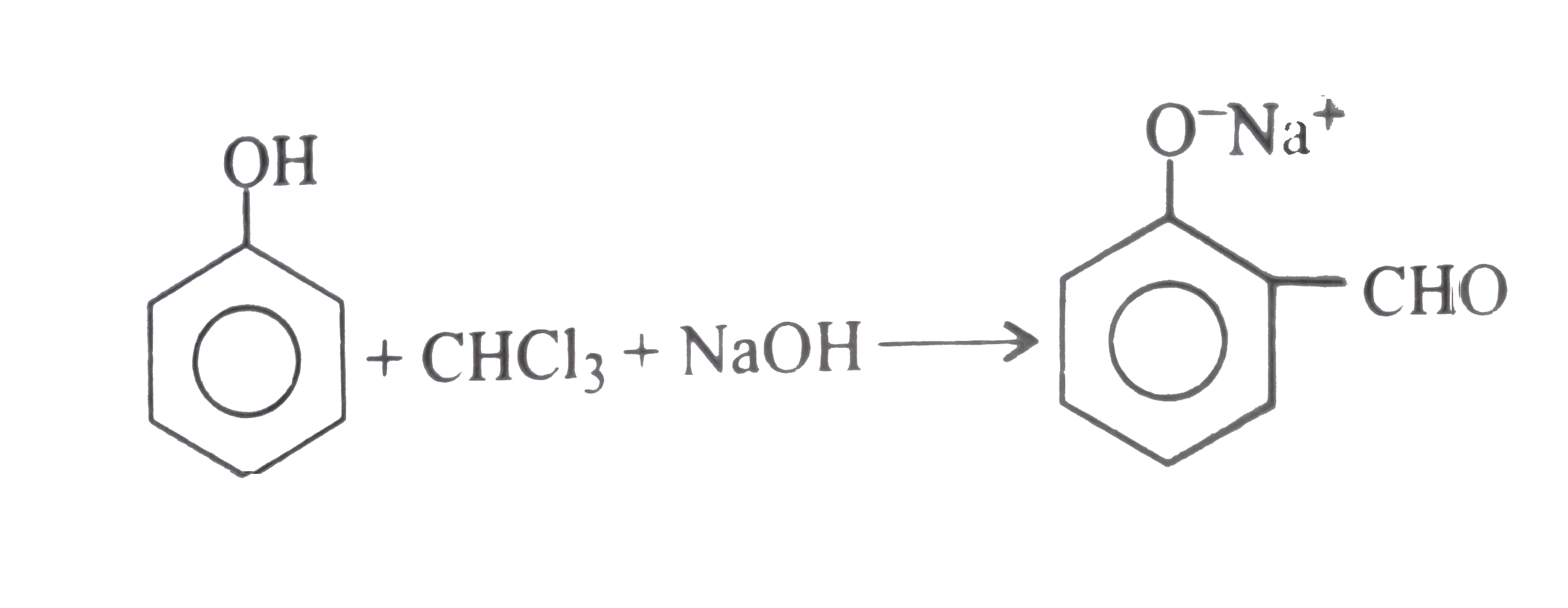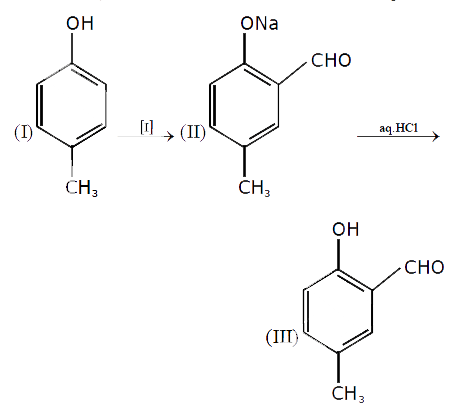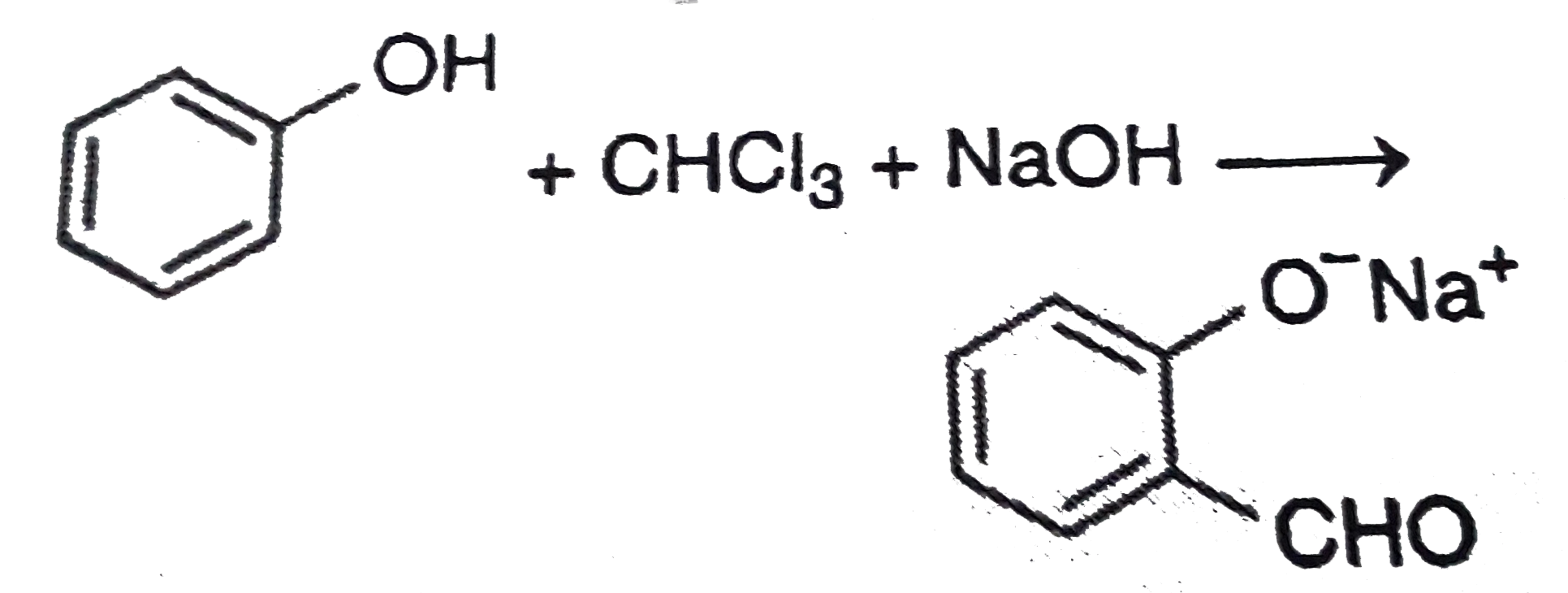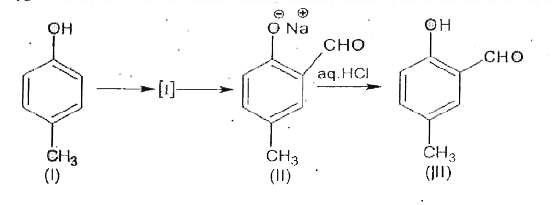In the reaction
 the electrophile involved is
the electrophile involved is
dichloromethyl anion (¯¯¯CHCl2)
formyl cation (+CHO)
dichloromethyl cation (+CHCl2)
dichlorocarbene (:CCl2)
The correct Answer is:D

The above given reaction is known as Riemer-Tiemann reaction. In this reaction, electrophile involved is dichlorocarbene (:CCl2) which is formed in the Ist step of mechanism. It is given as follows :
Mechanism
Step I Generation of electrophile
CHCl3+OH−⇔.−CCl3+H2
.−CCl3→:CCl2(Electrophile)Dichlorocarbene+Cl−
Step II Reaction of etectrophile with phenoxide

Topper's Solved these Questions
Similar Questions
Reimer -Tiemann reaction introduces an aldehyde group on to the aromatic ring of phenol, ortho to the hydroxyl group. This reaction involves electrophilic aromatic substitution. This is a general method for the synthesis of substituted salicyladehydes as depicted below.

The electrophile in this reaction isView SolutionIn a Friedel-Crafts reaction, the electrophile is:
View Solution
Knowledge Check
- Question 1 - Select One
Consider the following reaction,

The electrophile involved in the above reaction isAdichloromethyl cation, +CHCl2Bformyl cation, +CHOCtrichloromethyl anion, ¯¯¯CCl3Ddichlorocarbene, : CCl2 - Question 2 - Select One
In the sulphonation of benzene, the electrophile involved is:
AHSO−4BSO3CSO2DSO2−4 - Question 3 - Select One
In Friedel-Carfts acylation reaction the electrophile is :
AR⊕BR−⊕C=OCR−⋅C=ODR−⊕C∣Cl−O−+өAlCl3
In the Friedel-Crafts acylation reaction, the electrophile is
View SolutionWhat is the first step in the reaction of an electrophile (E)) with benzene?
View SolutionReimer Tiemann reaction is an electrophillic substitution reaction in which the electrophile is
View SolutionC6H5OH+CHCl3+NaOH→ salicyladehyde The electrophile involved in the above reaction is.
View SolutionReimer-Tiemann reaction introduces an aldehyde group, on to the aromatic ring of phenol, ortho to the hydroxyl group. This reaction involves electrophilic aromatic substitution. This is a general method for the synthesis of substituted salicyladehydes as depicted below.

The electrophile in this reaction isView Solution

